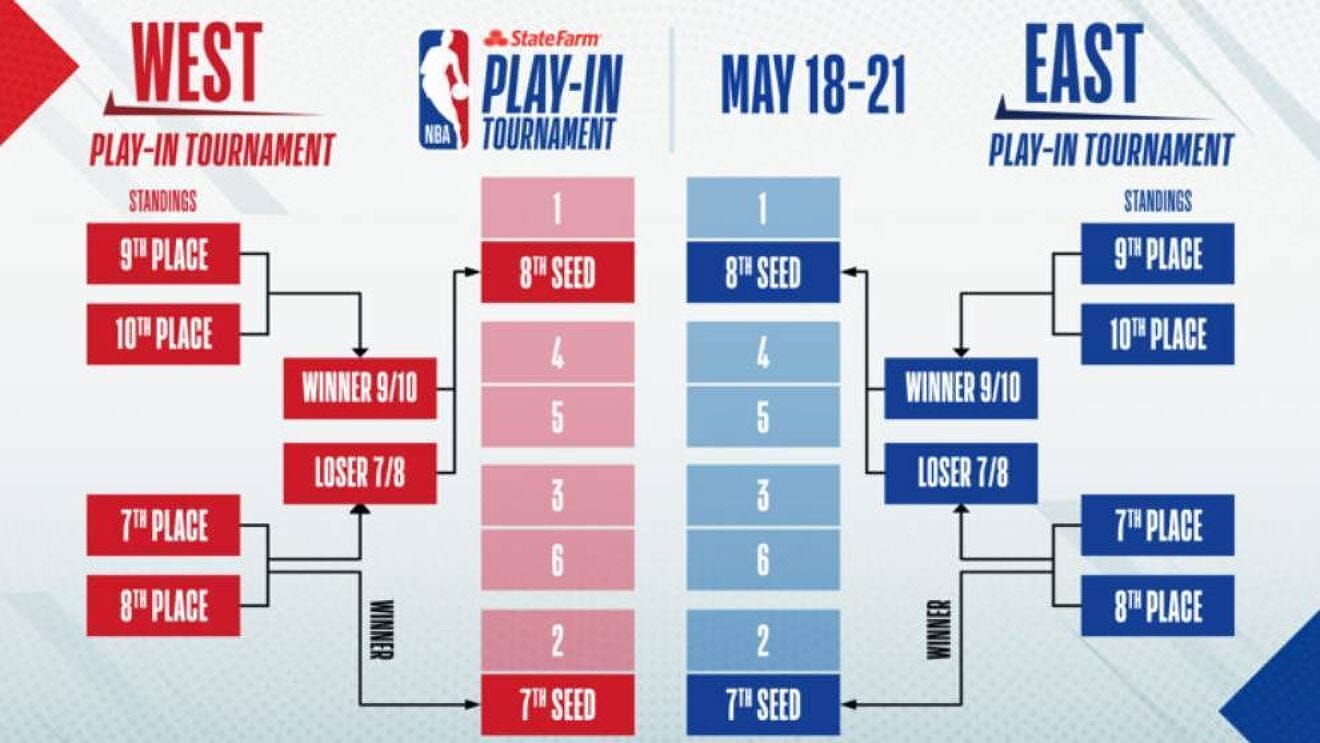In one of those behavioral economics books that were popular like 15 years ago, one of the dumb parables of capitalism was about a company that tried to show appreciation for its employees by giving away turkeys for Thanksgiving. At first, the workers were thrilled by the gesture. Then, as time went by, they got less excited by it every year, having come to expect whenever the holiday rolled around. So, since the company was no longer getting any boost in morale from the turkeys, they discontinued the program—at which point the employees got pissed. How dare you take away our turkeys.
Which brings us to this year’s new NBA Play-In tournament. Tonight, at 6:30 EST, the 10th place team in the Eastern Conference, the Charlotte Hornets, will play the 9th place team, the Indiana Pacers. The winner of that game will advance to play the LOSER of a game between the Celtics and Wizards (7th and 8th, respectively), for the final playoff spot. Meanwhile, the winner of the Celtics/Wizards game will claim the 7th seed. Then tomorrow the same process starts for the Western Conference.
The whole thing is kind of confusing and silly, and not without controversy. Earlier this month, LeBron James said “whoever came up with that shit needs to be fired” (a very anti-labor attitude, frankly) when it became clear that the Lakers might end up in the play-in. His objection was about fairness—in 2018 he said, “you’ve got to earn your spot to be in the postseason.” The Lakers, it seems, have “earned” their spot by finished in 7th, and ought to advance to the first round without having to go through this tournament. In other words: How dare you take away our turkeys.
The main lesson of the turkey story, according to the Freakonomics guys, is that people get used to incentives, growing accustomed to them over time, thereby reducing their effectiveness as a motivator. But another obvious takeaway is that our conceptions of merit and “earning” something are backwards. We like to think of ourselves as able to assess the value of something, and then reward it accordingly. But that’s not actually what happens. In reality, we look at the rewards someone or something gets and decide whatever they’ve done is what it takes to “earn” those rewards—even if the system that led to those rewards is arbitrary or absurd. So, if you’re used to getting a turkey at your job, then you come think of your work as “worth” one turkey, and so if someone takes that turkey away from you, it feels like a reflection on your value. And if the 7th-place team in the Western Conference has always made the playoffs, then the possibility that they may not this year feels unfair.
Of course, there’s no logical reason why the playoff cutoff should come after the 8th-place team. This year, in the East, the 8th and 9th place team actually have the same record. Meanwhile, the gap between the 6th place Heat and 7th place Celtics is four games, which certainly seems like a more logical cutoff. Over in the West, though, the 5-, 6-, and 7-seeds all have the exact same record, so it does seem unfair that the Lakers are forced to play for their spot, while Portland and Dallas advance based on tiebreakers.
But this reveals the futility of trying to parse things based on “merit.” No system of reward will ever be perfect. The entire point of a playoff is to introduce some degree of “unfairness”—if we wanted to decide the champion based on regular season records, we could do that. But we give teams with worse records a chance to eliminate better teams, and we don’t think of that as unfair. That LeBron James thinks finishing 7th earns a team the right to knock off a 2-seed, but that finishing 9th does NOT earn them a chance to knock off the 7th or 8th seed, shows how we just retrofit our concept of merit around whatever system happens to be in place.
This is not to say that “fairness” is a myth. Indeed, an intuitive sense of fairness is what guides a lot of morality. But one of capitalism’s great triumphs is getting people to accept the idea that the outcomes it produces are what people “deserve” and any intervention to alleviate suffering is therefore unfair. It is necessary, then, to separate our concept of “fairness” from whatever outcomes happen to be produced by the systems in place. A good economic system, like a good playoff system, accepts that some level of random chance and variance often plays as much of a role in outcomes as what one supposedly “deserves.” Instead of trying to eliminate this random “unfairness,” we should just try to ensure every team has the ability to overcome the bad luck they get. In other words: LeBron, stop whining and just try to beat the Warriors…



